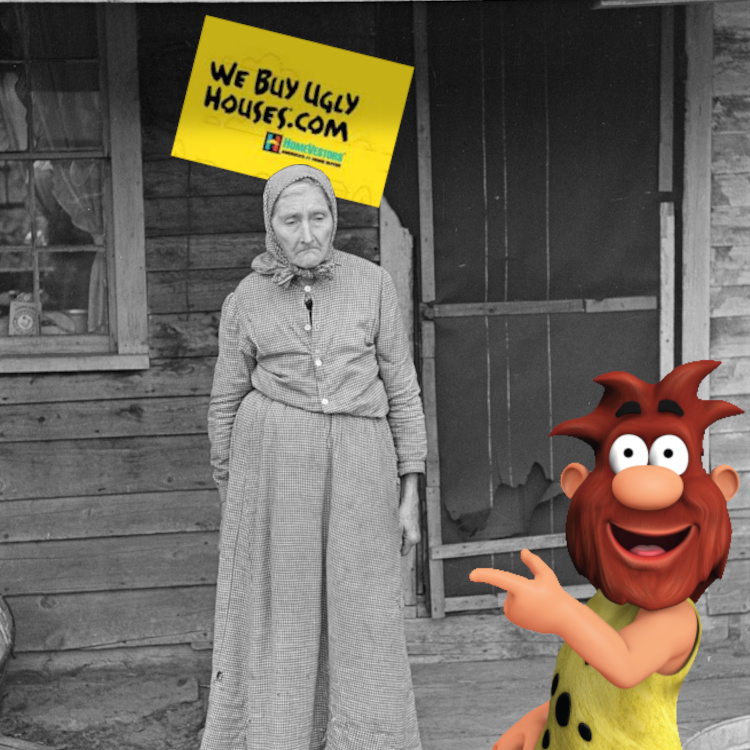Internet platforms have reached end-stage enshittification, where they claw back the goodies they once used to lure in end-users and business customers, trying to walk a tightrope in which there's just enough value left to keep you locked in, but no more. It's ugly out there.
1/
1/

If you'd like an essay-formatted version of this thread to read or share, here's a link to it on pluralistic.net, my surveillance-free, ad-free, tracker-free blog:
pluralistic.net/2023/05/10/sof…
2/
pluralistic.net/2023/05/10/sof…
2/
When the platforms took off - using a mix of predatory pricing, catch-and-kill acquisitions and anti-competitive mergers - they seemed unstoppable. Mark Zuckerberg became the unelected social media czar-for-life for billions of users.
3/
3/
Youtube was viewed as the final stage of online video. Twitter seemed a bedrock of public discussion and an essential source for journalists.
4/
4/
During that era, the primary focus for reformers, regulators and politicians was on improving these giant platforms - demanding that they spend hundreds of millions on algorithmic filters, or billions on moderators.
5/
5/
Implicit in these ideas was that the platforms would be an eternal fact of life, and the most important thing was to tame them and make them as benign as possible.
6/
6/
That's still a laudable goal. We need better platforms, though filters don't work, and human moderation has severe scaling limits and poses significant labor issues.
7/
7/
But as the platforms hungrily devour their seed corn, shrinking and curdling, it's time to turn our focus to helping users leave platforms with a minimum of pain. That is, it's time to start thinking about how to make platforms *fail* well, as well as making them *work* well.
8/
8/
This week, I published a article setting out two proposals for better platform failure on @EFF's Deeplinks blog: "As Platforms Decay, Let’s Put Users First":
eff.org/deeplinks/2023…
9/
eff.org/deeplinks/2023…
9/
The first of these proposals is #EndToEnd. This is the internet's founding principle: service providers should strive to deliver data from willing senders to willing receivers as efficiently and reliably as possible.
10/
10/
This is the principle that separates the internet from earlier systems, like cable TV or the telephone system, where the service owners decided what information users received and under what circumstances.
11/
11/
The end-to-end principle is a bedrock of internet design, the key principle behind #NetNeutrality and (of course) #EndToEndEncryption. But when it comes to platforms, end-to-end is nowhere in sight.
12/
12/
The fact that you follow someone on social media does not guarantee that you'll see their updates. The fact that you searched for a specific product or merchant doesn't guarantee that platforms like #Ebay or #Amazon or #Google will show you the best match for your query.
13/
13/
The fact that you hoisted someone's email out of your spam folder doesn't guarantee that you will see the next message they send you.
14/
14/
An end-to-end rule is an obligation on platforms to put the communications of willing senders and receivers ahead of the money they can make by selling "advertising" in search priority, or charging media companies and performers to "boost" posts to reach their subscribers.
15/
15/
It addresses the real political issue of spamfiltering the messages we ask our elected reps to send us. In other words, it takes the most anti-user policies off the table, even tech jettisons the pretense that they serve users, rather than owners:
pluralistic.net/2022/12/10/e2e…
16/
pluralistic.net/2022/12/10/e2e…
16/
The second part is #RightToExit: an obligation on tech to facilitate users' departure from their platforms. For social media, that would mean adopting #Mastodon-style standards for exporting your follower/followee list and importing it to a rival service when you want to go.
17/
17/
This solves the #CollectiveActionProblem that shackles users to a service - you and your friends all hate the service, but you like each other, and you can't agree on where to go or when to leave, so you all stay:
pluralistic.net/2022/12/19/bet…
18/
pluralistic.net/2022/12/19/bet…
18/
For audiences and creators who are locked to bad platforms with DRM - the encryption scheme that makes it impossible for you to break up with Amazon or other giants without throwing away your media.
19/
19/
Right to exit would oblige platforms to help rightsholders and audiences communicate with one another, so creators would be able to verify who their customers are, and give them download codes for other services.
20/
20/
Both these proposals have two specific virtues: they are easy to administer, and they are cheap to implement.
Take end-to-end: it's easy to verify whether a platform reliably delivers messages from to all your followers.
21/
Take end-to-end: it's easy to verify whether a platform reliably delivers messages from to all your followers.
21/
It's easy to verify whether Amazon or Google search puts an exact match for your query at the top of the search results. Unlike complex, ambitious rules like "prevent online harassment," end-to-end has an easy, bright-line test.
22/
22/
An "end harassment" rule would be great, but pulling it off requires a crisp definition of "harassment." It requires a finding of whether a given user's conduct meets that definition.
23/
23/
It requires a determination as to whether the platform did all it reasonably could to prevent harassment. These fact-intensive questions can take months or years to resolve.
24/
24/
Same goes for right-to-exit. It's easy to tell whether a platform makes it easy for you to leave. You don't need to convince a regulator to depose the platform's engineers to find out whether they've configured their servers to make this work, you can just see for yourself.
25/
25/
Administratibility is important, but so is cost of compliance. Many of the rules proposed for making platforms better are incredibly expensive to implement.
27/
27/
For example, the EU's rule requiring mandatory copyright filters for user-generated content has a pricetag starting in the hundreds of millions - small wonder that Google and Facebook supported this proposal.
28/
28/
They know no one else can afford to comply with a rule like this, and buying their way to permanent dominance, without the threat of being disrupted by new offerings, is a sweet deal.
29/
29/
But complying with an end-to-end rule requires *less* engineering than breaking it. Services *start* by reliably delivering messages between senders and receivers, then do extra engineering work to selectively break this, in order to extract payments from platform users.
30/
30/
For small platform operators - say, volunteers or co-ops running Mastodon servers - this rule requires no additional expenditures.
Likewise for complying with right-to-exit; this is already present in open federated media protocols.
31/
Likewise for complying with right-to-exit; this is already present in open federated media protocols.
31/
A requirement for platforms to add right-to-exit means implementing an open standard, one that already has reference code and documentation. It's not free by any means - scaling up reference implementations to the scale of large platforms is a big engineering challenge.
32/
32/
But it's a progressive tax, with the largest platforms bearing the largest costs.
Both of these proposals put control where it belongs: with users, not platform operators.
33/
Both of these proposals put control where it belongs: with users, not platform operators.
33/
They impose discipline on Big Tech by forcing them to compete in a market where users can easily slip from one service to the next, eluding attempts to lock them in and enshittify them.
34/
34/
• • •
Missing some Tweet in this thread? You can try to
force a refresh

 Read on Twitter
Read on Twitter



















